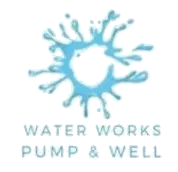How a Drinking Water Filter System Can Transform Your Health: Essential Insights and Tips
 Access to safe drinking water is essential for maintaining good health, yet studies reveal that over 2 billion people worldwide lack reliable access to clean water, leading to various health issues, including gastrointestinal diseases and long-term exposure to harmful contaminants. A drinking water filter system can play a pivotal role in transforming health by significantly reducing impurities such as chlorine, lead, bacteria, and other pollutants. According to a report by the World Health Organization, the use of effective filtration methods can decrease waterborne illnesses by up to 90%. Investing in a quality drinking water filter system not only enhances the taste and clarity of your water but also supports overall well-being. By understanding the types of filtration available and their health-related benefits, individuals can make informed choices to improve their water quality, ultimately enhancing their quality of life.
Access to safe drinking water is essential for maintaining good health, yet studies reveal that over 2 billion people worldwide lack reliable access to clean water, leading to various health issues, including gastrointestinal diseases and long-term exposure to harmful contaminants. A drinking water filter system can play a pivotal role in transforming health by significantly reducing impurities such as chlorine, lead, bacteria, and other pollutants. According to a report by the World Health Organization, the use of effective filtration methods can decrease waterborne illnesses by up to 90%. Investing in a quality drinking water filter system not only enhances the taste and clarity of your water but also supports overall well-being. By understanding the types of filtration available and their health-related benefits, individuals can make informed choices to improve their water quality, ultimately enhancing their quality of life.
How a Drinking Water Filter System Can Improve Your Well-Being: 5 Key Health Benefits
Installing a drinking water filter system can significantly enhance your well-being by providing cleaner, healthier water. Here are five key health benefits you might experience. First, filtered water reduces exposure to harmful contaminants such as heavy metals, chlorine, and bacteria, which can lead to various health issues. By eliminating these pollutants, you not only improve your hydration but also support your body's overall function.
Additionally, a reliable water filter system can enhance the taste and odor of your drinking water. This encourages increased water consumption, which is vital for maintaining hydration and promoting bodily functions. Proper hydration is linked to improved digestion, clearer skin, and better energy levels.
Tips for choosing the right drinking water filter include assessing your water quality through testing, understanding the type of contaminants you need to address, and selecting a system that fits your household's needs. Regular maintenance and filter replacement are also crucial to ensure optimal performance and health benefits. By prioritizing filtered water, you take a proactive step towards improving your health and well-being.
Top 3 Contaminants in Tap Water and How Filters Effectively Remove Them
Tap water, while convenient, can often harbor a range of contaminants that pose potential health risks. Among the most concerning are lead, chlorine, and volatile organic compounds (VOCs). Lead can leach into water from outdated pipes, affecting neurological development, especially in children. Fortunately, high-quality drinking water filters are designed to effectively reduce or eliminate lead levels, providing peace of mind for families.
Chlorine, widely used as a disinfectant in municipal water supplies, can create unpleasant tastes and odors. More critically, when chlorine reacts with organic matter in water, it produces harmful byproducts such as trihalomethanes (THMs), which have been linked to various health issues. Advanced filtration systems can remove chlorine and THMs, improving water quality and safety.
Finally, VOCs, which originate from pesticides, industrial solvents, and other chemicals, are another serious concern. These compounds can contaminate groundwater and result in health complications. Activated carbon filters are particularly effective in capturing VOCs, ensuring you have cleaner, healthier drinking water. By understanding these contaminants and utilizing effective filtration systems, you can significantly enhance your health and well-being.
The Role of Water Quality in Preventing Chronic Diseases: Insights from Recent Studies
Access to clean drinking water is crucial in preventing various chronic diseases. Recent studies underscore the importance of water quality in maintaining overall health, revealing that contaminants such as heavy metals, bacteria, and chemicals can significantly impact long-term wellness. For instance, exposure to lead has been linked to developmental issues in children, while long-term consumption of polluted water can contribute to kidney disease and various cancers. These findings highlight the critical need for effective water filtration systems in homes to ensure safe drinking water.
Investing in a high-quality drinking water filter can thus serve as a protective measure against these health risks. Filters can effectively remove harmful impurities, improving not only the taste of water but also its safety. Many systems are designed to reduce specific contaminants identified in local water supplies, allowing individuals to personalize their water purification approach based on their unique needs. By prioritizing water quality, individuals can take proactive steps towards preventing chronic diseases, ultimately transforming their health and well-being.
Impact of Water Quality on Health Outcomes
Choosing the Right Drinking Water Filter: Essential Features and Certifications Explained
When selecting a drinking water filter, it's crucial to understand the essential features that can vastly improve water quality. First, look for filters that can remove common contaminants like chlorine, lead, and sediment. Activated carbon filters are particularly effective, as they adsorb impurities and enhance taste. Additionally, consider the filter's flow rate, which indicates how quickly the water passes through. A faster flow rate can be more convenient, especially for families.
Certifications are another vital aspect that ensures the filter's effectiveness and safety. Look for products certified by organizations such as NSF International or the Water Quality Association. These certifications indicate that the filter meets strict safety standards and has passed rigorous testing. Tip: Always verify the certifications on the product packaging or the manufacturer's website to ensure you are getting a reliable water filtration system.
Lastly, consider your specific needs and the contaminants present in your local water supply. You can obtain a water quality report from your municipal supplier or invest in a home testing kit. Tip: Tailoring your filter choice based on water analysis helps in selecting the most suitable system, ensuring you enjoy the healthiest drinking water possible.
Comparative Analysis: Filtered Water vs. Bottled Water for Optimal Health Outcomes
Filtered water is increasingly recognized as a healthier alternative to bottled water, especially as the market for water treatment systems continues to grow. According to forecasts, the market size in the U.S. is expected to rise from $4.59 billion in 2024 to $7.55 billion by 2032, with a compound annual growth rate of 6.4%. This surge highlights a growing awareness of the importance of clean drinking water and the health implications associated with water quality. The prevalence of nanoplastics in our environment has prompted many to reconsider their drinking options. Recent studies suggest that boiling and then filtering water can significantly reduce the ingestion of these harmful particles.
In contrast, bottled water has faced scrutiny amid revelations about safety and environmental impact. Notably, a prominent business leader recently cautioned against the long-term consumption of bottled water, urging consumers to be more mindful of their choices. Although bottled water may seem convenient, it often lacks the rigorous filtration that a home water treatment system can provide. As consumers become increasingly informed, they are more likely to opt for filtered tap water, which not only provides essential hydration but also contributes to better health outcomes without the drawbacks of plastic pollution.
How a Drinking Water Filter System Can Transform Your Health: Essential Insights and Tips
| Dimension | Filtered Water | Bottled Water |
|---|---|---|
| Cost per Gallon | $0.10 | $1.00 |
| Contaminant Removal | High | Medium |
| Environmental Impact | Low | High |
| Taste | Improved | Variable |
| Convenience | Home System | Portable |
| Health Benefits | Consistent Quality | Inconsistent |



